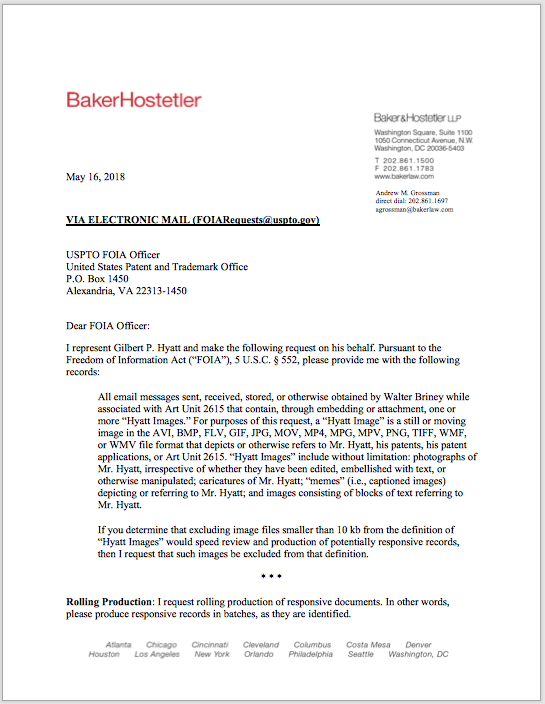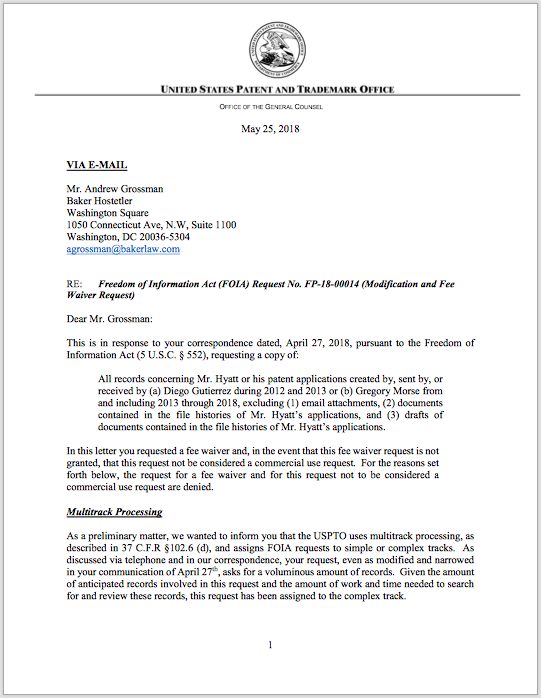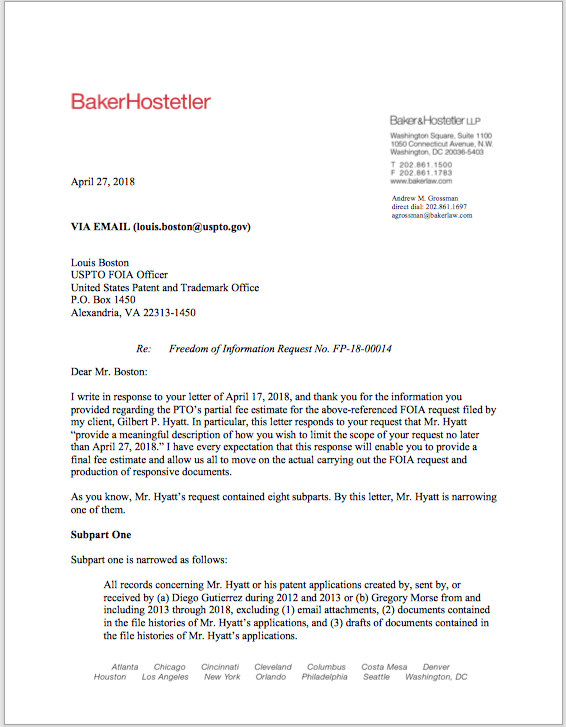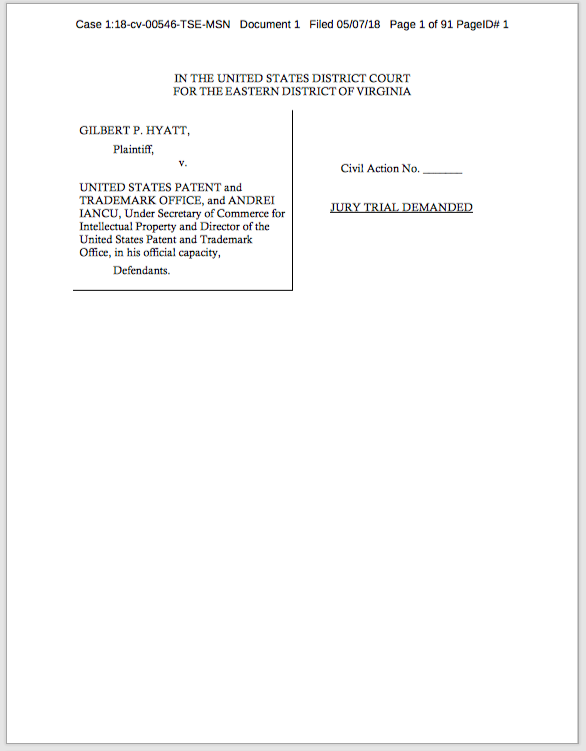In his litigation with the PTO, inventor Gilbert P. Hyatt was able to obtain through discovery a wealth of information concerning the SAWS program, the PTO’s handling of so-called “pre-GATT” patent applications, its treatment of his applications, and its bias and animus against him. The PTO blanket designated many of its discovery materials as confidential under a protective order. And so, in November 2017, Mr. Hyatt moved the district court to (in effect) unseal that evidence so that Mr. Hyatt could share it with the public.
The PTO opposed that motion, specifically seeking to maintain the secrecy of internal PTO emails that would serve as “evidence of unclean hands” in its treatment of Mr. Hyatt. Without citing any legal authority, it argued (in Section II of its brief) that “internal emails between USPTO employees, reports from internal USPTO databases (e.g., PALM record reports), and other internal USPTO documents” should not be disclosed to the public, even if they are not subject to any privilege and even if they could be obtained through a FOIA request. It also argued that PTO materials displayed in open court should be withheld from disclosure to the public.
In his reply brief, Mr.Hyatt explained that the PTO had “failed to ‘establish[] good cause for the “Protected” designation’ for each of the individual records at issue,” as the district court’s protective order required it to do.
Meanwhile, two days after Mr. Hyatt filed his motion to unseal, the PTO filed an “Emergency Motion To Seal Protected Material Filed By Plaintiff,” asking the district court to pull down off the public docket evidence produced by the PTO that had been shown and discussed in open court. Mr. Hyatt filed his opposition to that motion the same day, November 9, 2017, and the PTO never filed a reply. To date, the district court has yet to rule on the PTO’s “Emergency Motion.”




 Hyatt v. PTO – Redacted Complaint
Hyatt v. PTO – Redacted Complaint